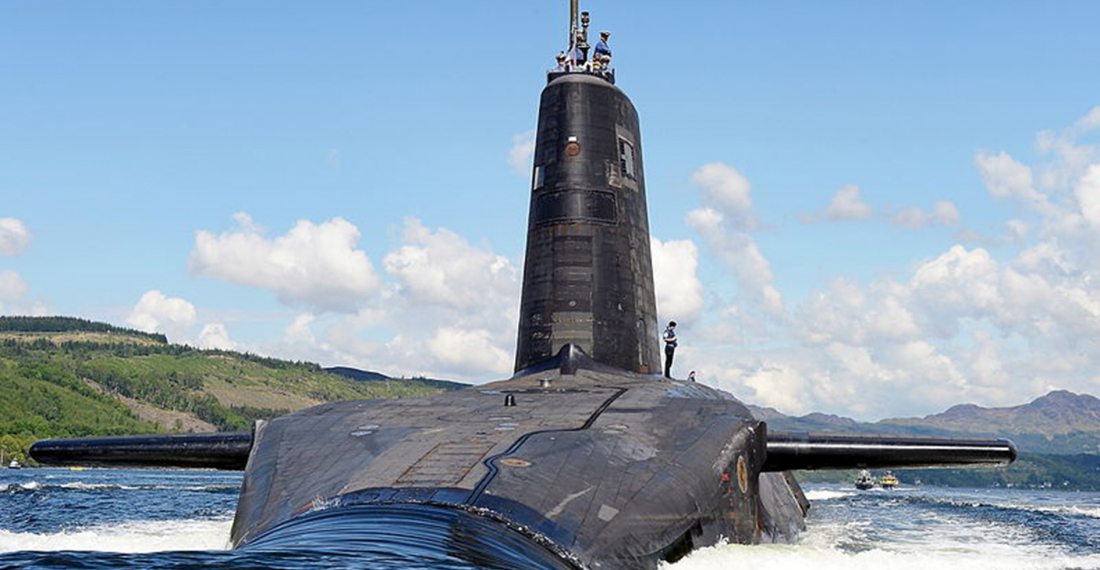The establishment of AUKUS, and subsequent submarine dispute, has exposed once more the EU's strategic vulnerability. At present the EU has no common foreign policy and no European armed forces capability, and strategic autonomy remains an illusion. But it is not a wrong goal to pursue, argues Maximiliaan van Lange in this op-ed for commonspace.eu.
For some time it has been clear that the European Union was moving towards strategic autonomy, placing the idea at the heart of its foreign and security policy. Earlier this month the EU published its own concept for future action in the Indo-Pacific Region. EU member states, Germany, France and the Netherlands, have also each published their own Indo-Pacific strategy in the past few years. The debate has in the last days been overshadowed by the cancellation of the contract between France and Australia for the supply of submarines, and the establishment of AUKUS – a new trilateral security agreement between the United States, the United Kingdom and Australia that excludes the 27-nation bloc.
For France, military co-operation with Australia was an essential part of a strategy for the Indo-Pacific unfolding since 2018. France is one of the few nuclear powers with a footprint in the Indo-Pacific, through its overseas territories. The Indo-Pacific region is home to 1.5 million French people living in French communities in the Pacific and Indian Ocean and 8,000 soldiers forming the French forces positioned in the region. Therefore, AUKUS certainly has economic, strategic, and political implications for France and Europe that have yet to be fully evaluated.
Nevertheless, Australia may have had valid reasons for preferring the British-American submarines. The new alliance shows the increased concern in Canberra about China's growing maritime capabilities in the Indo-Pacific. Thus, it makes sense for Australia to cancel the purchase of a new fleet of diesel-electric submarines and replace it with a fleet of discreet nuclear-powered submarines developed with the United Kingdom and American support. Only these types of submarines can play a long-term strategic role in the Indo-Pacific.
From a European perspective, the European Union should not be surprised that the United Kingdom is forming an alliance with the United States and Australia, given the acrimonious negotiations with Britain during Brexit in recent years. For the moment, the European Commission refused to discuss the impact that AUKUS might have on EU-UK relations. A new EU-UK strategic partnership has yet to be built.
France's anger at being unceremoniously sidelined by allies is also understandable. The new partnership has angered France after Australia pulled out of the 56 billion euro (65.6 billion dollar) contract. Nevertheless, it is not clear what Paris hoped to achieve by escalating a diplomatic row with Washington. The American withdrawal from Afghanistan was already supposed to be a signal for the European Union that the US will pursue its national interests in the way it, and not its allies, sees fit. European government leaders were critical of the unilateral action of the US and the calls for strategic independence increased.
Europe must understand that in the new world order, interests in Asia come first in US policy. This trend was already growing during the presidency of Donald Trump, whose America First approach to foreign policy led many Europeans to question Washington's reliability and commitment to European security.
Brussels needs to assess the new situation and act accordingly. It remains crucial that serious work is undertaken on a geopolitical strategy in which European values and interests are central. Because last week we witnessed how the EU can be marginalised in the race between China and the US.
This matter reinforces the focus on the debate on the need for strategic co-operation within the European Union. It requires a total reboot of the EU constitutional order for strategic autonomy to be more than an aspiration. The Vice-President of the European Commission for Inter-institutional Relations, Maroš Šefčovič, already envisages the possibility of EU leaders using this issue to discuss ways of strengthening the bloc's defences.
In view of these significant geopolitical changes, the European Union must be secure and better protect itself against unwanted external influences and threats, and continue to act internationally in defence of our values and economic and security interests. But for now, this debate is theoretical for Europe. Some European NATO members prefer a more robust and purposeful transatlantic link to a more independent European Union capability. But the question remains as to what a renewed transatlantic relationship should look like if Washington continues to focus on domestic issues and turns its attention to Asia-Pacific when it comes to foreign policy. Therefore, it is wise for the EU to work hard to acquire more military capabilities, in compliment to strengthening transatlantic ties, allowing Europe to become a more capable partner to the United States.
If France and the European Union see the new AUKUS alliance as a challenge to their external power projection, the solution is strengthening Europe's military capabilities. There are already many initiatives aimed at achieving that goal, such as the European Intervention Initiative and the European Defence Fund. This episode will undoubtedly influence work on the EU's 'strategic compass', expected to be unveiled in early 2022, to give purpose and direction to the EU's foreign and security policy.
Indeed, the High Representative of the EU for Foreign Affairs and Security Policy, Josep Borrell, said last week that the recent "submarine conflict" between France and its allies, the US, UK and Australia, had highlighted the need to enhance communication between the allies, and the importance of a European military force to complement NATO. Once the dust has settled on the Franco-American dispute, the EU should draw the correct conclusions. At present the EU has no common foreign policy and no European armed forces capability, and strategic autonomy remains an illusion. But it is not a wrong goal to pursue.






